5 Cowboy Foods That Weren’t So Great—And 6 Trail Meals That Actually Sound Delicious
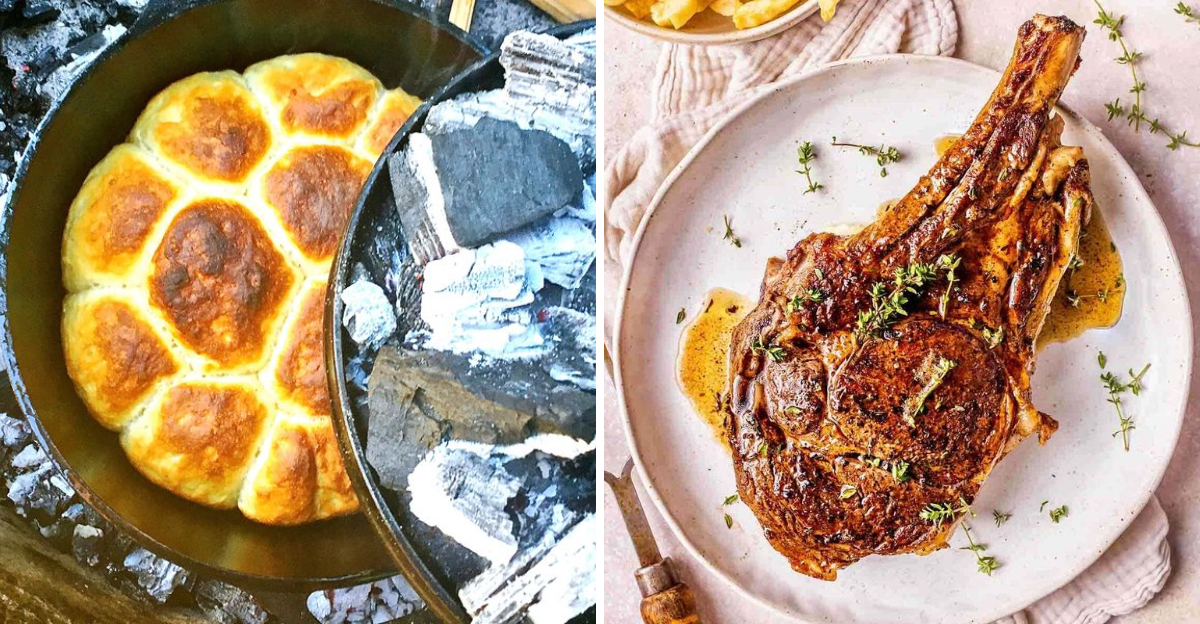
Here’s a look at five cowboy foods from the trail days that weren’t exactly appetizing, balanced by six hearty meals that actually sound pretty delicious and still inspire campfire cooking today.
1. Hardtack
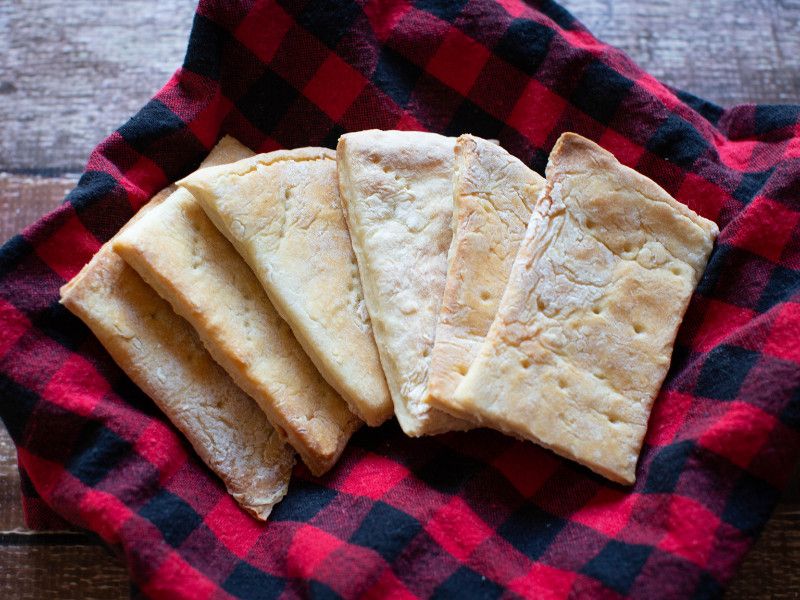
Imagine a food so tough it could break your teeth! Hardtack was the cowboy’s companion, a bread made with just flour and water. It was baked until rock-hard, making it nearly imperishable. Cowboys would often soak it in coffee or stew to soften it.
Despite its practicality, it lacked flavor, leaving much to be desired. Eating hardtack required more than just strong teeth—it needed a strong will!
In the wilds of the West, this staple was essential, but hardly enjoyable. It was more about survival than satisfying one’s palate.
2. Salt Pork
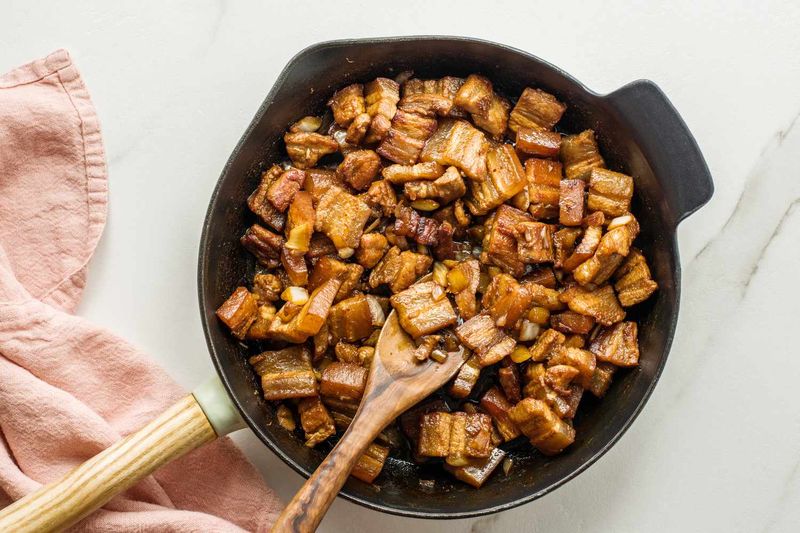
Salt pork was the greasy, salty sustenance for the weary cowboy. Preserved through heavy salting, it was meant to withstand long journeys. However, its flavor was far from delightful.
Without proper preparation, it was a gut-busting experience, leaving cowboys longing for something fresh. Often cooked with beans to mask its intense saltiness, salt pork was more necessity than pleasure.
This fatty fare was critical for energy but required a strong stomach to enjoy. It’s a reminder of times when preservation trumped taste, and culinary finesse took a back seat.
3. Coffee Grounds in Water
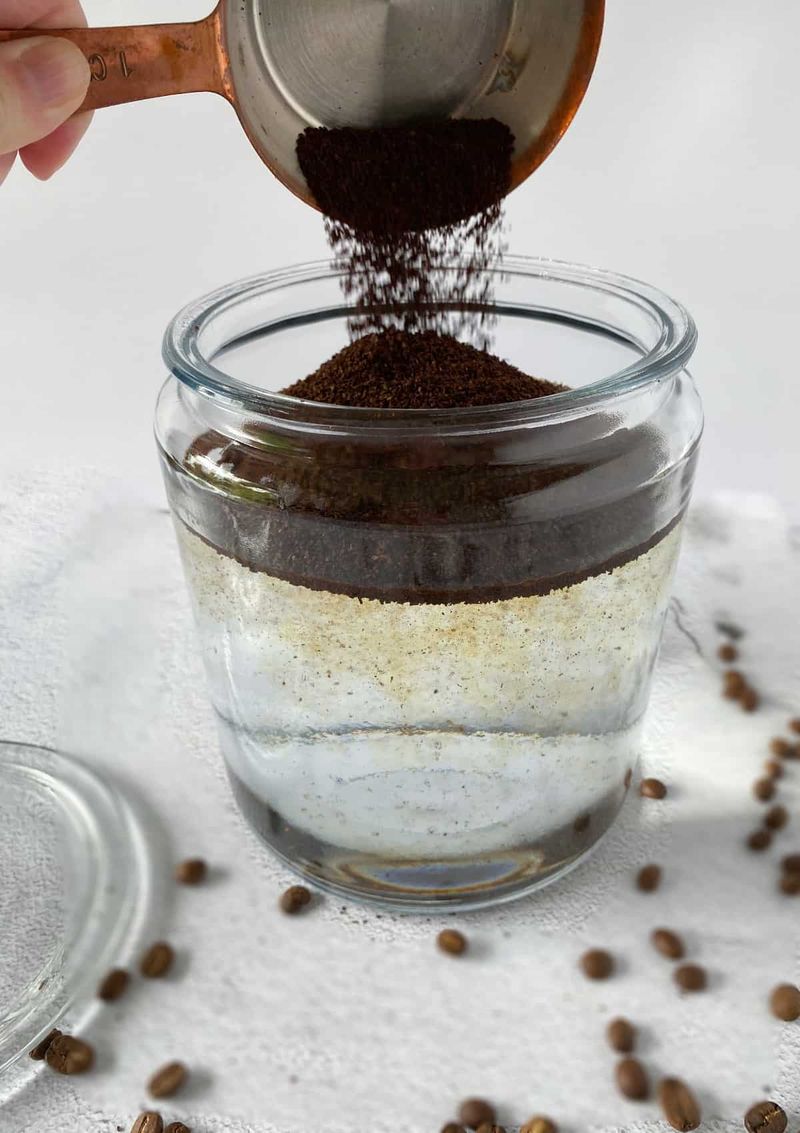
Cowboys craved caffeine, yet their brew was a gritty challenge. Coffee grounds boiled directly in water resulted in a bitter, unrefined drink. A far cry from today’s espresso, this concoction was more about getting a caffeine fix than savoring flavor.
The gritty texture didn’t deter the rugged cowboy, but it surely tested their grit. Without modern filters, every sip was an unpredictable mix of liquid and grounds.
This was cowboy coffee, a stark reminder of the frontier’s harsh realities, where comfort was secondary to survival.
4. Sowbelly Stew
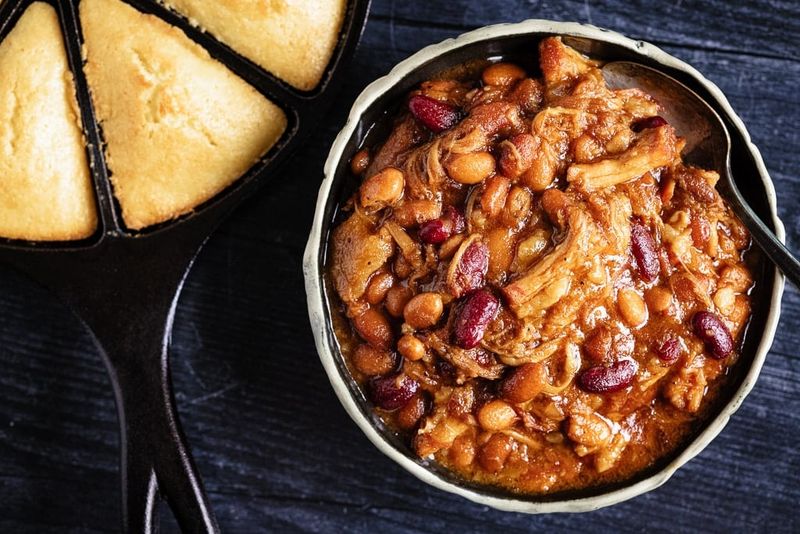
Sowbelly stew was a staple on the trail, yet far from a feast. Made mostly from pork belly and beans, it was greasy and monotonous. The stew filled stomachs but failed to thrill taste buds.
Day after day, cowboys faced the same meal, leading to a culinary fatigue. Though it provided needed sustenance, the repetitive nature wore on even the hardiest soul.
A meal of substance, not style, the sowbelly stew was more about survival. It was a one-pot wonder that sustained, not delighted, during long, arduous journeys.
5. Desert Jerky
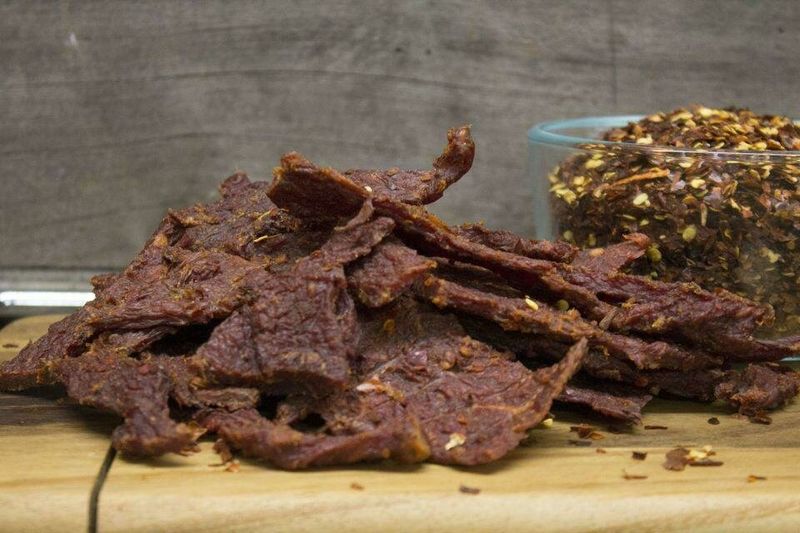
Desert jerky, tough as leather and seasoned with the elements, was a cowboy’s portable protein. Made by drying meat over a fire or under the sun, it was a task fraught with guesswork.
Often overly chewy and sometimes questionably seasoned, this jerky was more about practicality than pleasure. It could last for ages but required a strong jaw to consume.
In the dusty trails of the Wild West, this was the snack on the go, an essential energy boost for those long rides, not a gourmet experience.
6. Dutch Oven Sourdough Biscuits
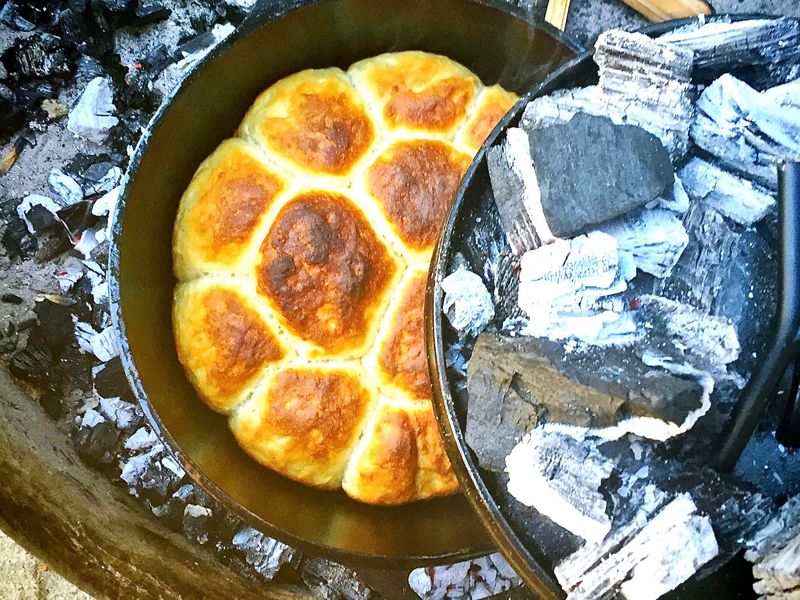
Dutch oven sourdough biscuits brought a touch of comfort to the cowboy’s rugged life. These fluffy, slightly tangy biscuits were a far cry from the rock-hard hardtack.
Baked over coals, they offered a soft, inviting texture, becoming a favorite around the campfire. Their warmth and flavor were a welcome surprise, bringing smiles to weary faces.
The art of sourdough was passed down, making these biscuits a tradition that continues to delight. They represent a blend of simplicity and satisfaction in cowboy cuisine.
7. Campfire Beans with Bacon
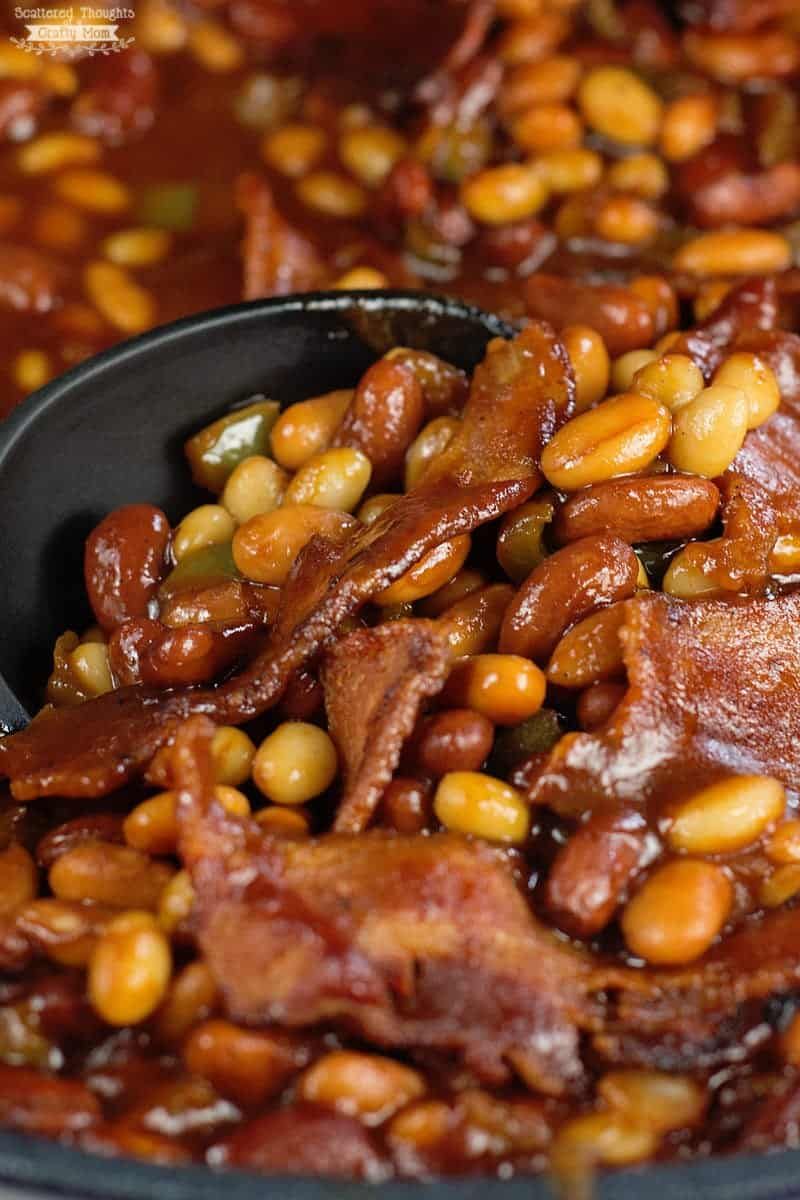
Campfire beans with bacon were a cowboy’s delight, turning simple ingredients into a hearty feast. Slow-cooked with smoky bacon and onions, these beans were rich and flavorful.
Seasoned with molasses or brown sugar, they offered a depth that was both satisfying and memorable. This dish was more than just sustenance; it was a taste of home on the trail.
For cowboys, it provided warmth and comfort, a dish that spoke to the soul. It reminds us that even in rugged conditions, a touch of culinary creativity can bring joy.
8. Skillet Cornbread
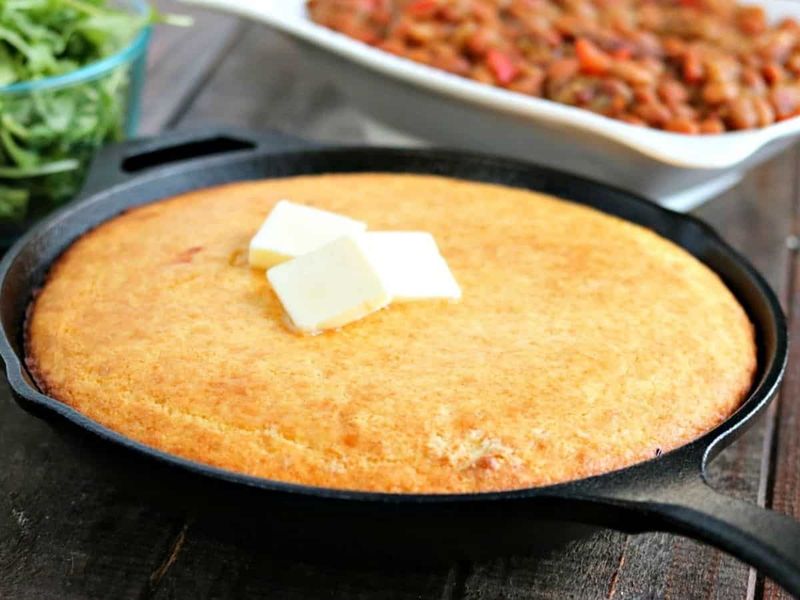
Skillet cornbread was a golden delight on the cowboy’s menu. Baked in a cast iron skillet, it was perfect for soaking up stews or munching on its own.
With its crumbly texture and rich flavor, it was a versatile companion to many meals. The skillet’s even heat ensured a crispy edge, contrasting with a tender interior.
This cornbread was a testament to the cowboy’s ingenuity, turning simple cornmeal into a beloved dish. It added warmth and heartiness to any trail meal.
9. Cowboy Steak
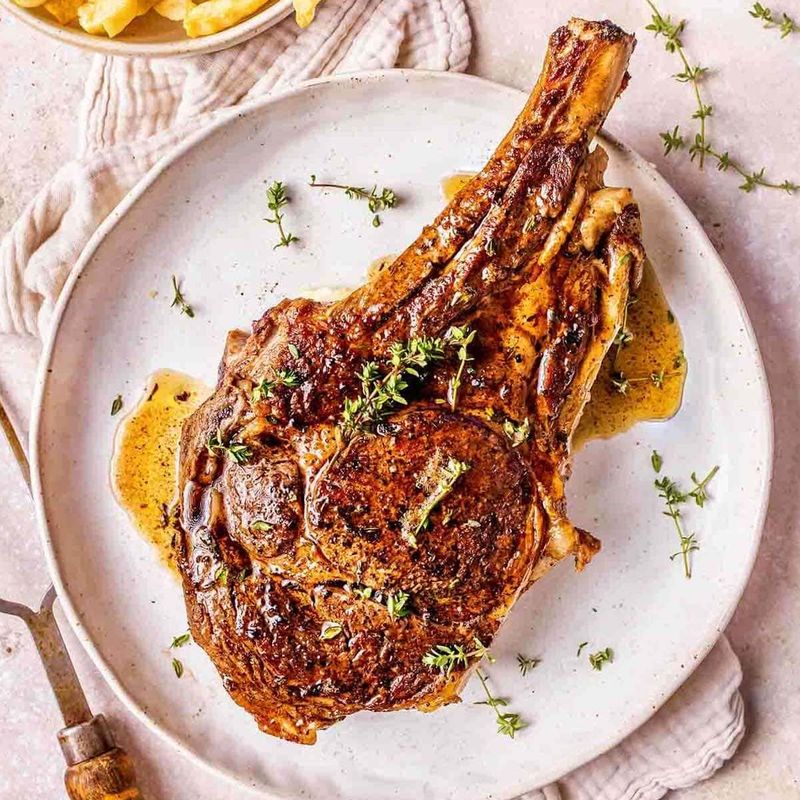
The cowboy steak, a thick, bone-in cut cooked over flames, was a highlight of the trail menu. With simple seasoning, it captured the essence of smoky flavor and juicy tenderness.
This was no ordinary steak—it was a culinary celebration of the cowboy’s rugged life. Cooking it directly over an open fire brought out its bold character.
For cowboys, it was a reminder of home and hearth, offering a satisfying end to a long day. It speaks of straightforward enjoyment, where quality ingredients shine.
10. Trail Mix (Pemmican-Inspired)
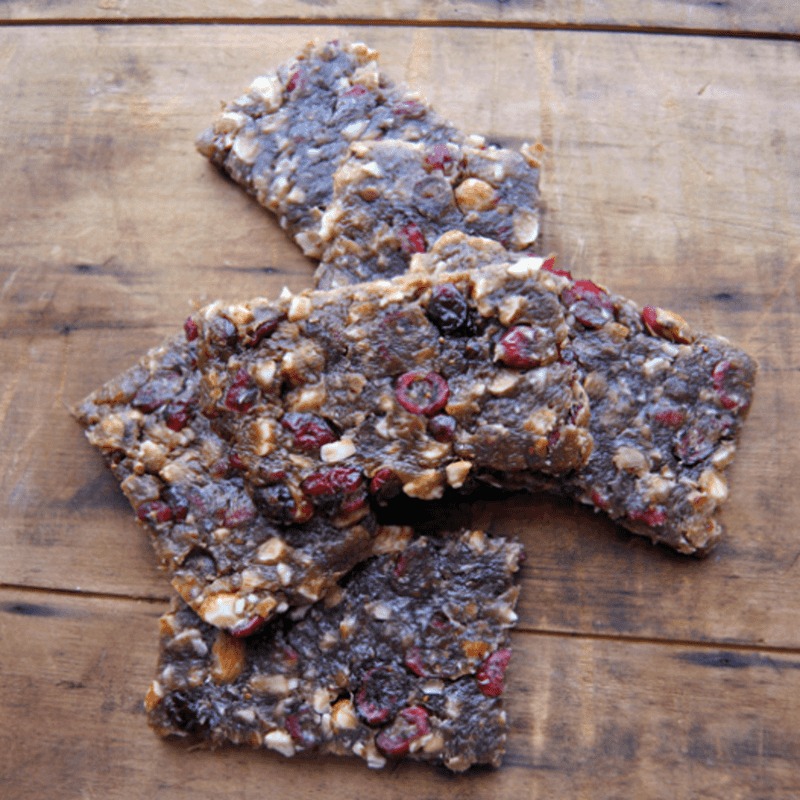
Trail mix, inspired by traditional pemmican, brought balance to the cowboy’s diet. Combining dried fruits, nuts, and jerky, it was a portable energy boost.
This mix offered a taste that was both nourishing and enjoyable, contrasting with the bland pemmican of old. It was convenient, yet satisfying, a blend of textures and flavors.
In the vast expanse of the frontier, trail mix was a reminder of nature’s bounty. It provided sustenance with a touch of delight, perfect for those on the move.
11. Chuckwagon Hash
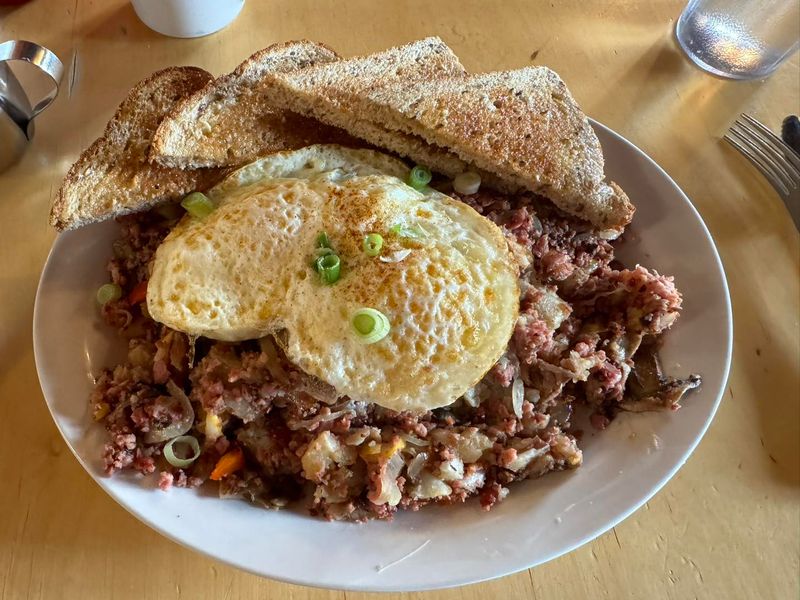
Chuckwagon hash was the cowboy’s one-pan wonder, a savory mix of potatoes, onions, beef or sausage, and peppers. Cooked until crispy, it was a flavorful meal on the trail.
This dish was both nutritious and satisfying, offering a taste that was hearty and robust. It brought together the best of cowboy cooking, using simple ingredients to create something special.
The hash was more than a meal; it was a symbol of community, cooked and shared around the fire. It warmed both body and spirit on cold nights.
